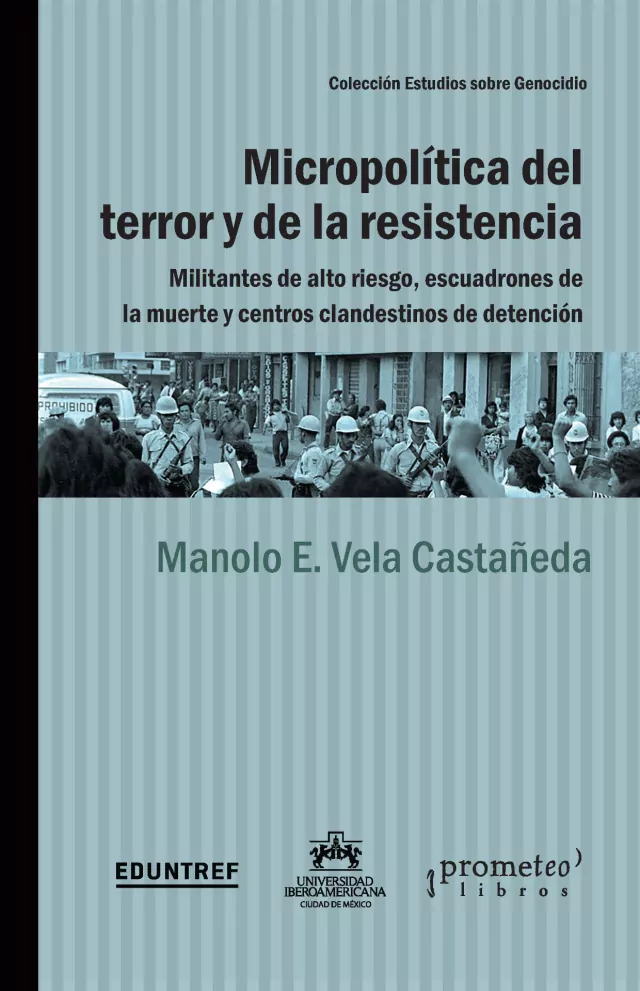 As part of the collection "Studies on Genocide" by Prometeo Editorial (Buenos Aires), former Kellogg Visiting Fellow Manolo E. Vela Castañeda (2011-12) has published the new book Micropolítica del terror y de la resistencia. Militantes de alto riesgo, escuadrones de la muerte y centros clandestinos de detención [Micropolitics of Terror and Resistance: High-Risk Militants, Death Squads, and Clandestine Detention Centers] (2023).
As part of the collection "Studies on Genocide" by Prometeo Editorial (Buenos Aires), former Kellogg Visiting Fellow Manolo E. Vela Castañeda (2011-12) has published the new book Micropolítica del terror y de la resistencia. Militantes de alto riesgo, escuadrones de la muerte y centros clandestinos de detención [Micropolitics of Terror and Resistance: High-Risk Militants, Death Squads, and Clandestine Detention Centers] (2023).
 The volume is about the micropolitics of state terror and resistance, offering a glimpse into the complex world of militants who were “processed” by the powerful machines of state terror – the torturers, the health personnel, the caregivers, the analysts, the bosses, depraved officers, and the ex-militants who, as a result of torture, went to work for the death squads. It is also about the world of the militants who managed to escape from the clandestine detention centers, of the survivors who – once outside – refused to attend the meetings that the squad had left for them, of those who learned to resist, because human dignity was never exterminated, and of those who now support legal cases against the perpetrators.
The volume is about the micropolitics of state terror and resistance, offering a glimpse into the complex world of militants who were “processed” by the powerful machines of state terror – the torturers, the health personnel, the caregivers, the analysts, the bosses, depraved officers, and the ex-militants who, as a result of torture, went to work for the death squads. It is also about the world of the militants who managed to escape from the clandestine detention centers, of the survivors who – once outside – refused to attend the meetings that the squad had left for them, of those who learned to resist, because human dignity was never exterminated, and of those who now support legal cases against the perpetrators.
Vela Castañeda is a professor at Universidad Iberoamericana whose research interests include human rights, civil and political rights and political violence (revolutions, indigenous and peasant rebellions, social movements and other forms of collective strife); struggles for access to and delivery of justice; everyday forms of resistance; and the living conditions of workers and marginalized people. He was winner of the Academy of Science award for the best doctoral thesis, which he published in El Colegio de México. His work also includes the books The Platoons of Death, Guatemala, the Infinite History of the Resistance and Guatemala, the Republic of the Disappeared and The Disappeared.





